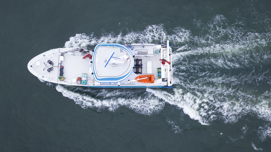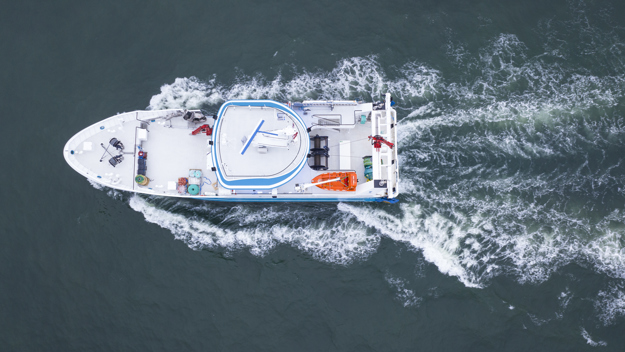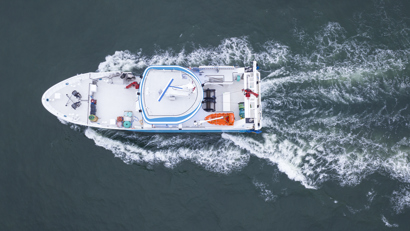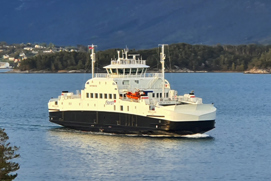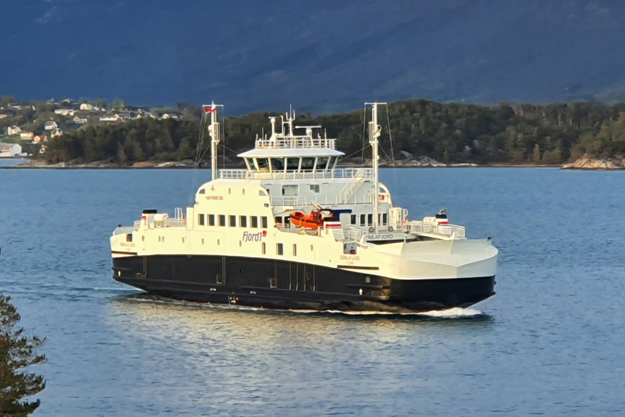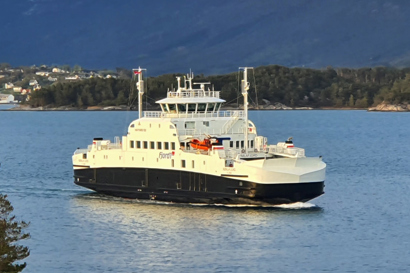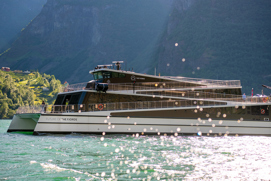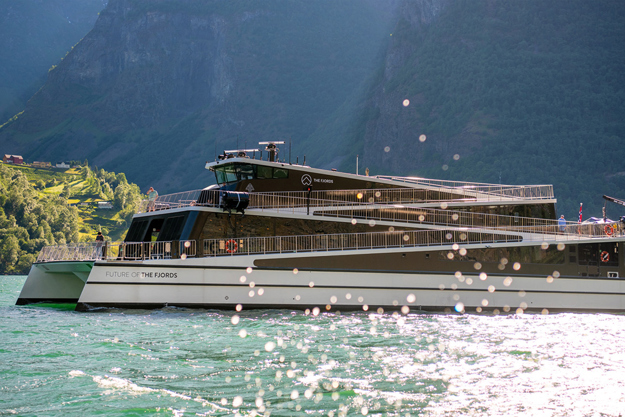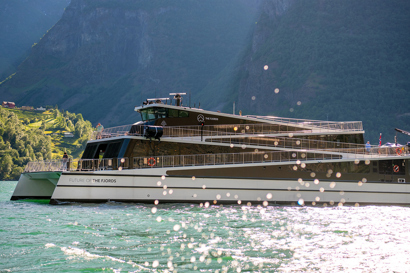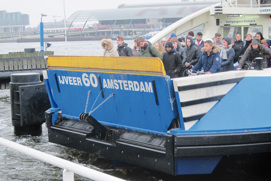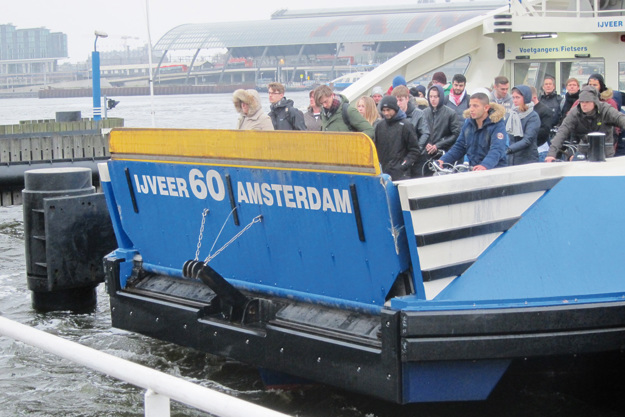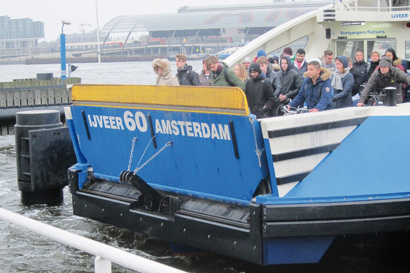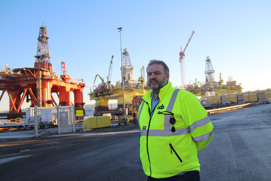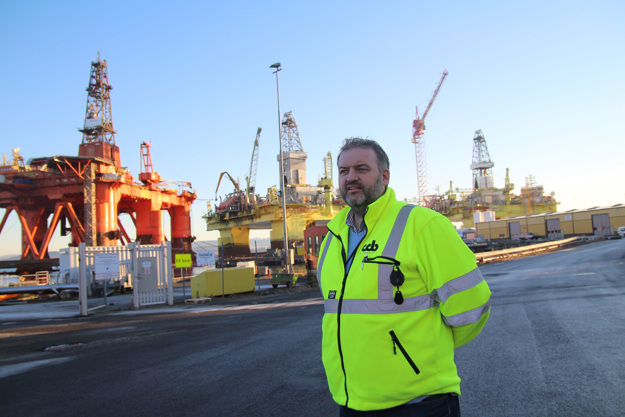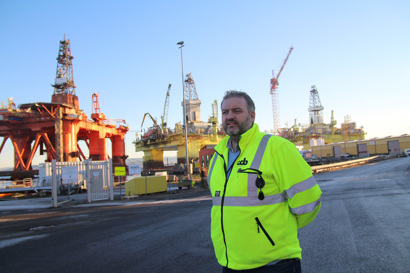
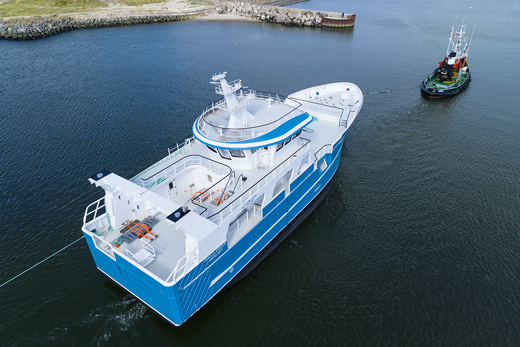
NORWAY: The Norwegian fishing industry is steering toward a greener future in response to port demands for reduced diesel generator usage. This transformation also involves educating and inspiring the next generation of fishermen to embrace electrified vessel construction for an eco-friendlier industry.
So, in December 2021, as Hvide Sande Shipyard in Denmark was entrusted to build a new training ship for Måløy Fishing School in Norway, their partner Vest-El committed to creating a vessel tailored to modern fishing practices. Today, thanks to Danfoss’ VACON® NXP System Drive, the new Skulebas training vessel runs on hybrid propulsion, and the students enjoy practical training in hybrid solutions on a contemporary vessel.
Discover how the Danfoss VACON® NXP power converter lowers diesel consumption, while also enabling precise monitoring on the modern fishery training ship, Skulebas.
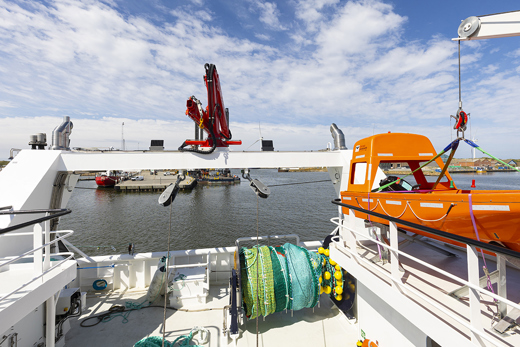
The challenge: Training fishermen in hybrid systems
The shipping industry is transforming significantly, driven by the International Maritime Organization's (IMO) goal to reduce greenhouse gas emissions in shipping. The IMO target is to lower these emissions by at least 50% in 2050, compared to 2008 levels. This places immense pressure on shipbuilders to decarbonize practices and set sails for greener waters.
In the case of the new vessel Skulebas, the objective was to future-proof the vessel by reducing diesel consumption, while also ensuring it met the rigorous demands of the fishing industry. With fish to catch and store alongside accommodation of 20 people, the vessel runs round-the-clock, leaving no leeway for downtime.
Additionally, while its predecessor vessel fished with lines and nets only, the aim for the new vessel was that it could also trawl and flyshoot. These fishing techniques demand more thrust from the propeller, and precision in monitoring, speed, and navigation – no matter the weather and operating conditions. To address these requirements for both performance and sustainability, Danfoss Drives’ team collaborated with the maritime contractor Vest-El to develop a hybrid-driven vessel capable of handling these demands.
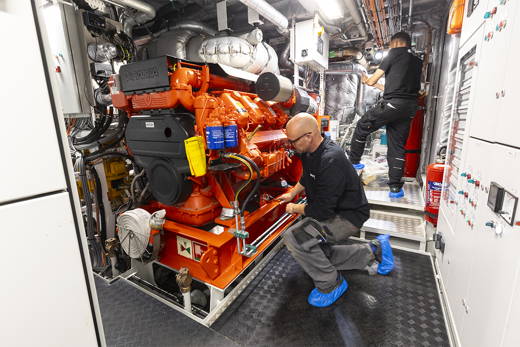
The solution: Danfoss power converter
The VACON® NXP System Drive is a comprehensive line of AC/DC converters for heavy industry needs where constant operation is essential. Components like busbar systems and power devices are separated into individual compartments to contain issues and prevent widespread failures, ultimately reducing cost over lifetime, and maintenance costs.
Having previously collaborated with Hvide Sande Shipyard, Danfoss understood their unique requirements and previously successful solutions. Based on standard VACON® NXP hardware, Danfoss and Vest-El tailored a solution for the new Skulebas ship, ensuring it would meet industry demands.
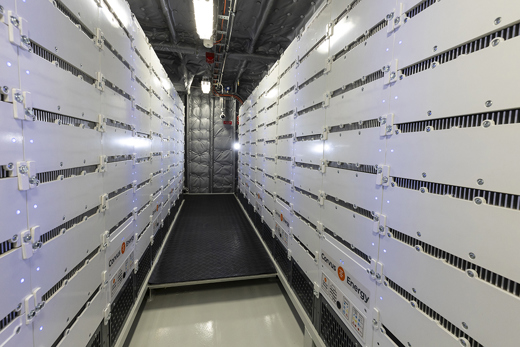
The new NB 153 Skulebas is a 35-meter training ship equipped with the latest advanced machinery and monitoring fishing systems built for navigation and safety training. All the systems on board are centered around electrified solutions.
Danfoss power conversion enables a hybrid system with two 600 kW electric motors running the propellers, driven by two diesel generators, and supported by a 1 MW battery bank. Peak shaving optimizes fuel consumption.
To ensure endurance and seamless project execution, the hybrid systems underwent rigorous testing, with up to 90% of testing completed before installation. By June 2023, the new ship was fully equipped and ready to embark on its upcoming adventures.
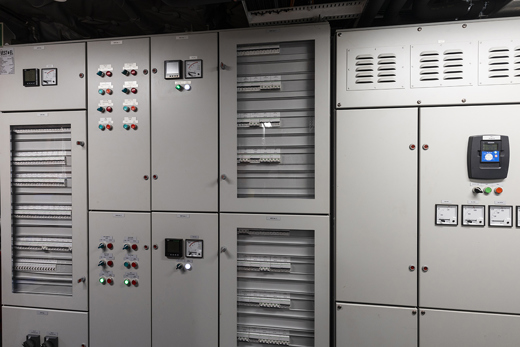
Benefits of VACON® NXP System Drive
- Maintenance savings and optimized cash flow with modules delivered closer to operation start due to the short set-up time
- Cost-effective standardized solution
- Quick setup and maintenance thanks to modular design and pull-out features
- Minimal downtime with readily available spare parts
- Dedicated testing time to ensure seamless project execution
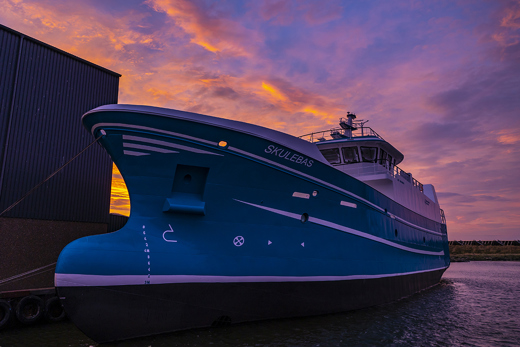
The outcome: Less CO2 emission
With Danfoss power conversion on board, the new Skulebas vessel gains several benefits. The hybrid solution provides the flexibility to employ diesel power only when necessary, resulting in a reduction of carbon dioxide emissions and the release of harmful minerals like sulfur. Plus, minimizing diesel emissions also improves air quality aboard the vessel and in port.
Finally, this technology elevates the precision and stability of steering and speed control, ultimately boosting operational efficiency. Coupled with reduced noise levels, these enhancements improve the working environment for students and crew members.
In an industry facing numerous challenges, introducing hybrid propulsion eliminates at least one of them. The benefits are not only in improved vessel performance, but also in emission reduction: projected as up to 213 tpa CO2.
Danfoss products installed in this project
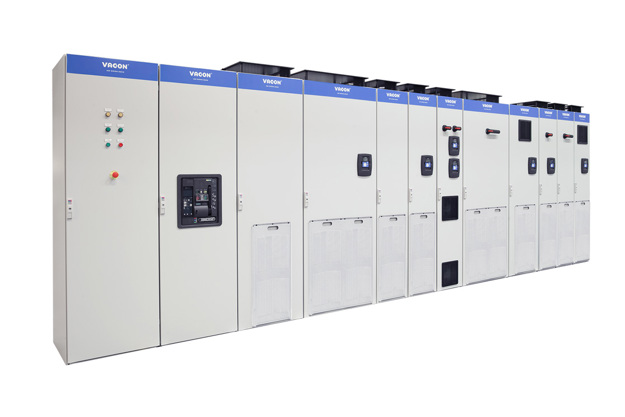
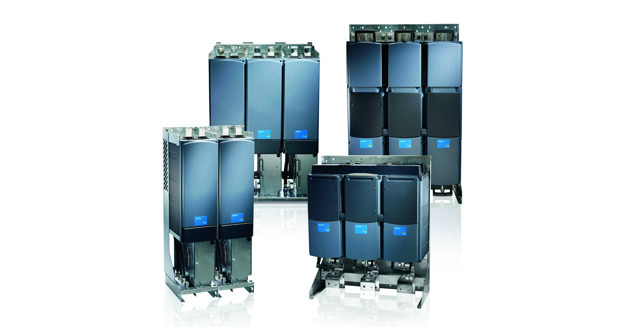
Related case stories
-
if (isSmallPicture) {


 Decarbonizing the next-generation training ship, Skulebas
Decarbonizing the next-generation training ship, SkulebasNORWAY: The new training vessel at Maløy Fishing School uses less diesel and emits less CO2, while also meeting the rigorous demands of the fishing industry.
-
if (isSmallPicture) {


 Where smart ferry charging begins with a smart grid
Where smart ferry charging begins with a smart gridNORWAY: The Hareid-Sulesund ferry operations have reduced CO2 emissions by 7000 tonnes annually with the introduction of electric vessels. In transitioning ferries from diesel to pure electric power, powerful onshore support is essential, in the form of reliable infrastructure for rapid charging capacity and stable grid supply. The systems on board and on shore act as a single system – a sophisticated and competitive system developed by Norwegian Electric Systems (NES) using Danfoss technology.
-
if (isSmallPicture) {


 Future of the Fjords meets 2026 emission targets, today
Future of the Fjords meets 2026 emission targets, todayThis world-first fully-electric carbon fiber vessel safeguards the pristine Norwegian fjord environment, ensuring zero emissions.
-
if (isSmallPicture) {


 VACON® drives power hybrid ferries 24/7
VACON® drives power hybrid ferries 24/7NETHERLANDS: Passenger ferries bridge Amsterdam’s IJ River, keeping the city connected around the clock. Hybrid propulsion powered by VACON® drives ensures 24/7 uptime, smaller generator size, better air quality, less noise and easy maneuverability of the vessels.
-
if (isSmallPicture) {


 CCB Bergen saves 5,000 liters of diesel fuel daily
CCB Bergen saves 5,000 liters of diesel fuel dailyThe shore power supply system using VACON® NXP drive modules also annually reduces CO2 and NOx emissions by nearly 5,000 tons.

